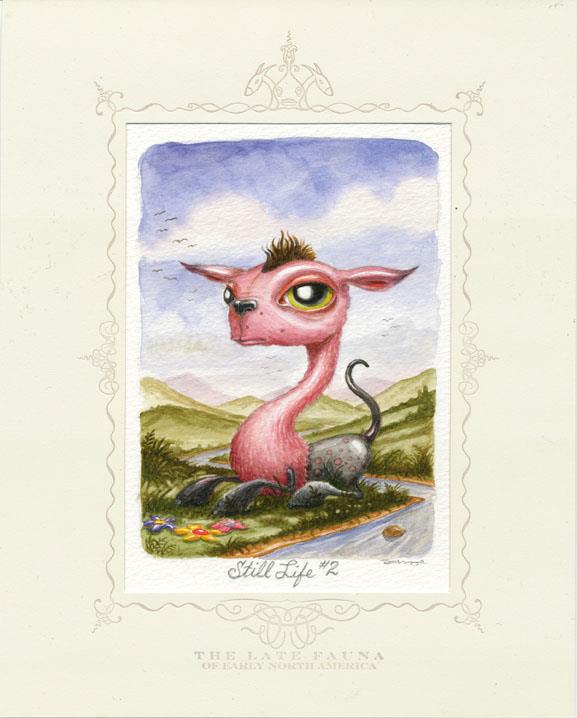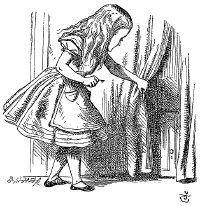
“THE LATE FAUNA OF EARLY SOUTH AMERICA: STILL LIFE #2”
I like to play little games in social settings. Those who know me well can see when I’m doing it to others, but I like the idea that if you had just met me, you would not know what to think of me and you might wonder if I was being serious.
For example, when I was 17, I used to ask everyone I met—on my first impression— “if you could hang out with one mythical creature, which one would it be?”
At that point I was judging people’s characters by the degree of creativity that they gave back. On the one hand, if you answered “unicorn”, you were a very predictable, mainstream, lame, good-for-nothing, etc. person. I would often find those who like unicorns to be the people who did not take time to really think about the question: out of any-mo-fuckin mythical creature these people choose the creature that can’t fly, has no official magic power or advantage and is practically just a horse with a horn plastered on it. I’m sorry. Don’t even get me started on the “rainbow unicorn” response.

Later in life I started a new game, one in which I asked the group which of the Alice in Wonderland characters they each identified with and why.
 Each person gets assigned a character, from the Mad Hatter to the Chesire Cat to the March Hare or Queen of Hearts, and there can’t be duplicates. Sometimes people would already have a character in their head that they’ve always identified with— the Mad Hatter, for example, could resemble us all in some ways— but when others are around these identifications might have to be switched around. The setting changes practically everything. For example, how can Matt be the Caterpillar when here sits Brett, who may be equally as philosophical, and may also be resting on a mushroom? In another sense, Nick may become the Chesire Cat in the situation because he’s been the only person making jokes.With all of us here, does there exist a Queen of Hearts? And, most importantly, who can be Alice?
Each person gets assigned a character, from the Mad Hatter to the Chesire Cat to the March Hare or Queen of Hearts, and there can’t be duplicates. Sometimes people would already have a character in their head that they’ve always identified with— the Mad Hatter, for example, could resemble us all in some ways— but when others are around these identifications might have to be switched around. The setting changes practically everything. For example, how can Matt be the Caterpillar when here sits Brett, who may be equally as philosophical, and may also be resting on a mushroom? In another sense, Nick may become the Chesire Cat in the situation because he’s been the only person making jokes.With all of us here, does there exist a Queen of Hearts? And, most importantly, who can be Alice?I, naturally, had always identified with Alice and her curiosity, her ability to give herself good advice but to not always take it, and her drive to explore the boundaries of her environment. Anyway, one day I was playing the game with people and I was completely shut down by a friend who told me I could not be Alice.
I was like what.
If it wasn’t me, who could it be? I tried to make an argument for myself. But it was too late, as she said, “Alice is all of us.”

She said Alice, being the child, the character we know the most about, is who we all identify with. She represents a quest into self and world discovery that we all experienced as children, that we all knew and felt, something familiar, something that connects us back to the real world in a haze of madness. The other characters perhaps express something darker about culture and how it can corrupt people’s Alice-ness over time, as we follow the White Rabbit further. The question becomes, who am I now?
In any case, what I’m trying to get at about these games is that they’re actually quite useful. While they might seem too playful to initiate among my parents’ friends, which has caught many off-guard, I find it worthwhile if the goals of the game are understood. In thinking about these hypothetical situations we are expanding our idea of ourselves and our relationships to each other. We are choosing a side of someone they may not have thought about themselves and seeing how that is different from others. And soon you find that this random, seemingly insignificant side of you—like how you would want to hang out with a mermaid or how you associate with the Mad Hatter—might actually define you. For me, these games always seems like a covert way to learn about someone’s true character, without having to ask them what school they go to and what they major in.
(art Scott Musgrove)

No comments:
Post a Comment